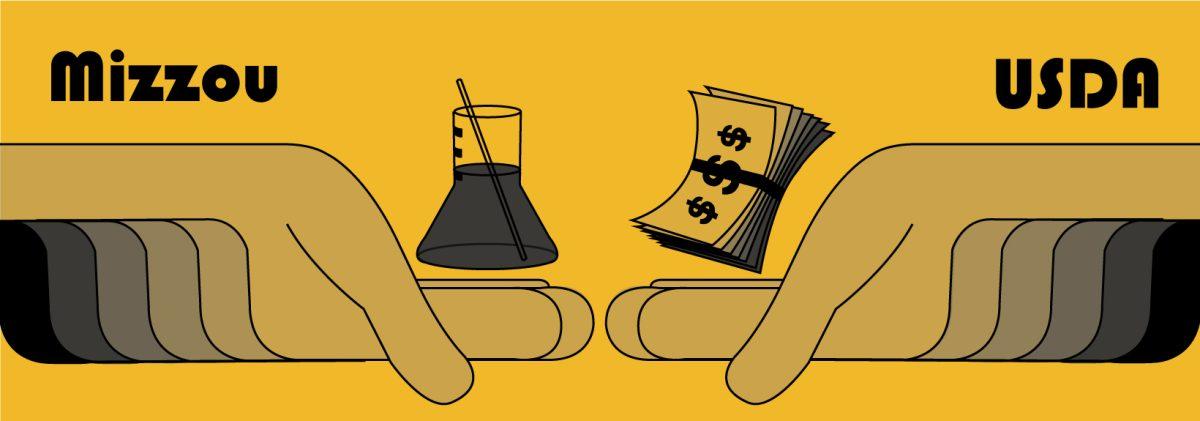The U.S. Department of Agriculture awarded MU a $25 million grant to fund research on climate-smart practices in agriculture — the largest federal research, education and extension grant the university has ever received.
According to a press release by the College of Agriculture, Food and Natural Resources, a research group consisting of 14 MU faculty members and possibly a few student interns, will develop methods for more sustainable and climate-smart agriculture. The project is collaborative, and according to the press release the research team will be partnering with the MU Center for Regenerative Agriculture, Lincoln University, the Missouri Soybean Association, and other groups.
“When we do start [the project], we’ll be spending a lot of time talking with farmers … to help make it easier [for them] to adopt these practices,” said Robert Myers, project head and Director for the Center for Regenerative Agriculture. “Another component of the project will be helping to develop new markets for products from farms that are using these climate-smart practices.”
The project is anticipated to span five years.
Dean and Vice Chancellor of CAFNR Christopher Daubert said in the press release: “We’re thrilled that we’ll be able to support Missouri producers through this grant. In fact, over the five-year project period, up to 3,000 Missouri farmers are expected to be involved in the project.”
Participating farmers will receive help establishing practices that will help their crops weather more extreme weather conditions like droughts and floods. In addition, the grant will support the development of new markets for products produced using climate-smart practices, such as grass-fed beef.
CAFNR is working with the USDA’s new Partnerships for Climate-Smart Commodities program, which will provide monetary incentives to farmers to adopt improved practices. One of the goals of the program is to develop soil that’s more resistant to extreme weather caused by climate change.
“[USDA’s] intention is to try to get farmers to use more practices that will help the farmers deal with extreme weather conditions,” Myers said. “We find that if we put more carbon, or organic matter, into the soil, then that helps the soils and the crops and the livestock do better in tough weather conditions.”
Missouri is already seeing the effects of climate change. According to a 2016 report by the U.S. Environmental Protection Agency, the state has gotten a half-degree Fahrenheit hotter in the past century, resulting in flooding, drought conditions and intensified heat waves. This summer, Gov. Mike Parson signed an executive order implementing a state drought alert for nearly half the state, including Boone County.
Myers is optimistic that the project will make a difference in the fight against climate change.
“If these farming practices can take some greenhouse gasses out of the atmosphere, such as carbon dioxide, and put them into the soil instead … that can help the planet as a whole,” Myers said.
Edited by Emma Flannery | [email protected]
Copy edited by Kyla Pehr and Jacob Richey














